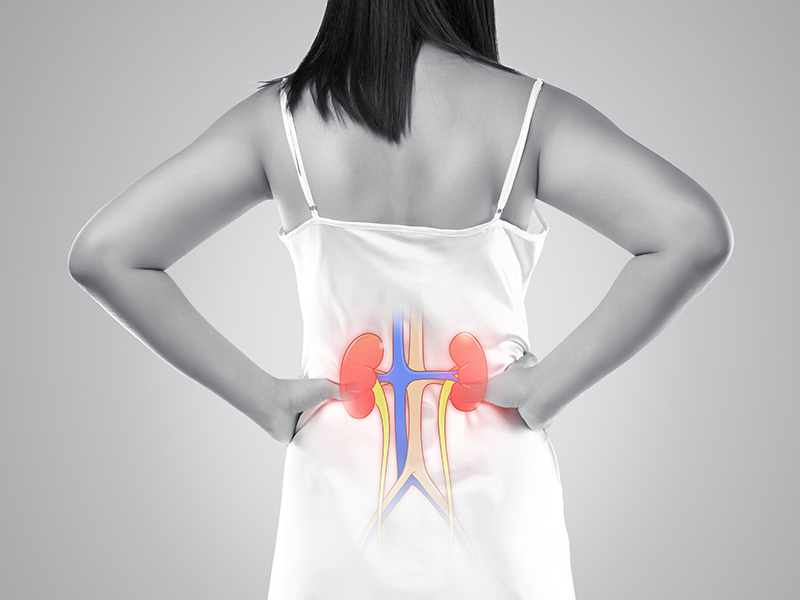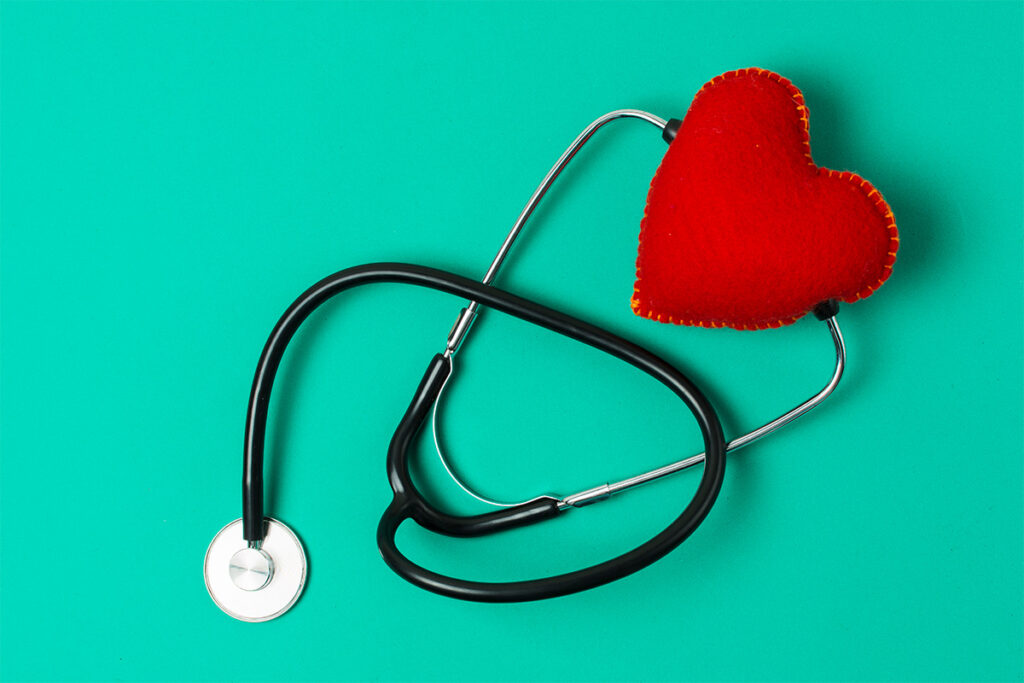Chronic Kidney Disease: Latest
facts that you need to know about
kidney failure

Chronic Kidney Disease is a condition in which kidneys are not able to function as they have to. It is a condition which is associated with old age but people of Indian origin are particularly susceptible to it. Chronic Kidney Diseases is often confused with kidney or renal failure which is not correct. Chronic kidney diseases is a condition which can, if not managed properly, lead to kidneys reaching a stage where the person can’t survive without kidney replacement and/or dialysis.
i. How do kidneys function
ii. What causes Chronic Kidney Disease (CKD)?
iii. Risk Factors for Chronic Kidney Disease
iv. Symptoms of Chronic Kidney Disease
v. Treatment for Chronic Kidney Disease
Chronic Kidney Disease How do kidneys function
Kidneys are bean-shaped organs located right below the ribcage. Most people visualise kidneys as the body’s janitor that cleans out waste, but that’s an oversimplification. Kidneys are more like the body’s chemist, which regulates the balance of fluid, salts, minerals and hormones in the body. Beyond their filtering function, learning surprising kidney facts can help people appreciate these organs’ vital role in overall health maintenance. Another fun fact about kidneys is that they are the organs that receive the highest share of blood from the heart. Yes, more than even the brain! The heart supplies the blood with collected waste material from every corner of the body, kidneys clean it up and supply it back for reuse.
What causes Chronic Kidney Disease (CKD)?
Like any other organ kidneys also become weak with age. However, there are risk factors which are known to contribute to Chronic Kidney Diseases. Some of the most important risk factors are:
i. High blood pressure (HBP) which puts strain on blood vessels leading to kidneys coming under stress. The intricate blood pressure connection to kidneys shows how hypertension management is crucial for preventing kidney disease progression.
ii. Diabetes leads to high Sugar content in blood which clogs the blood vessels in the kidneys. The heart-kidney health relationship is complex, as cardiovascular health directly impacts kidney function and vice versa.
iii. High cholesterol leads build-up of fatty deposits in the blood vessels supplying your kidneys, which can make it harder for them to work properly.
iv. Autosomal dominant polycystic kidney disease – an inherited condition where growths called cysts develop in the kidneys.
v. Blockages in the flow of urine from factors like kidney stones and enlarged prostate.
Symptoms of Chronic Kidney Disease
It is a well-known fact that India is the Diabetes capital of the world. Indians also have a much higher prevalence of High Blood Pressure. These two factors combine to make Chronic Kidney Diseases a major health issue in India. It is estimated that nearly 22% of Indians are suffering from chronic kidney diseases against the world average of 5%. What makes the matter more complicated is that Indians tend not to do regular health check-ups and therefore most of the CKD’s are diagnosed in phase 4 and above when the damage to kidneys has become serious. Hence, Chronic Kidney Diseases can often go unnoticed for a long time. It also gets diagnosed in blood or urine tests done for diabetes. Hence a person must be on the lookout for the symptoms.
Some of the symptoms that you should check for arei. Swollen feet, ankles and hands
ii. Consistent tiredness
iii. Breathlessness & nausea
iv. Blood in your urine
In case of any such symptoms, you should immediately get in touch with your doctor and undergo diagnostics.
The main diagnostic tests for CKD are:i. Estimated glomerular filtration rate(EGFR) which is a blood test that measures how well your kidneys are filtering blood.
ii. Urine albumin-creatinine ratio (UACR) which tests urine for protein that passes onto urine when kidneys are damaged.
iii. Blood Urea Nitrogen test which, as the name suggests, looks for Nitrogen levels in the blood. Nitrogen is a byproduct of protein breakdowns in the body and elevated levels of Nitrogen are an indicator of kidney malfunction.
Treatment for Chronic Kidney Disease
There is no specific treatment to cure chronic kidney disease. Most of the treatment is focussed on managing and alleviating symptoms like blood pressure, swelling, low protein diet etc. Understanding the progression helps in kidney disease stages management, with specific strategies for each phase of the condition.
It must be noted that CKD is not a death sentence. It is an indicator of damage to kidneys and with proper care and lifestyle changes a person can lead a fulfilling life. Given the long-term care requirements, securing critical illness protection for kidney disease ensures financial support throughout the treatment journey.












